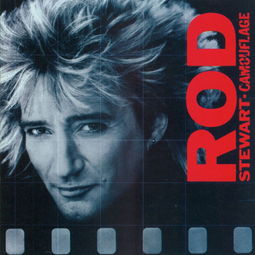Fishing in a Farm: Essential Tips for Unforgettable Angling Experiences

Fishing in a farm setting can be an incredibly rewarding experience, offering a unique blend of tranquility and the thrill of the catch. Whether you're a seasoned angler or a beginner looking to explore the waters around you, mastering the art of fishing in a farm environment requires a blend of knowledge, patience, and a few essential tips. In this article, we'll delve into the nuances of farm fishing, providing you with a comprehensive guide to help you catch more fish and enjoy your time on the water.
Choose the Right Location
The first step in successful farm fishing is to choose the right location. Not all farms are created equal when it comes to fishing opportunities. Look for farms that have natural water bodies such as ponds, lakes, or streams. These areas are more likely to be teeming with fish. Additionally, consider the following:
- Pond Size: Larger ponds often have more fish, but smaller ponds can be more manageable and provide a more intimate fishing experience.
- Stream Flow: Streams with a gentle flow are ideal for fishing, as they tend to attract more fish due to the oxygen-rich water.
- Vegetation: Areas with dense vegetation can be great spots for fish to hide and feed, making them excellent fishing locations.
Understand the Farm's Ecosystem
Before you cast your line, take a moment to understand the farm's ecosystem. Familiarize yourself with the types of fish that inhabit the water bodies and their feeding habits. This knowledge will help you choose the right bait and lures and increase your chances of a successful catch.
- Fish Species: Common farm fish include catfish, bass, perch, and sunfish. Each species has specific preferences for food and habitat.
- Feeding Times: Fish are most active during dawn and dusk, so these are the best times to fish. However, some species may feed throughout the day, so it's important to adapt your strategy accordingly.
Select the Proper Equipment
The right equipment can make all the difference in farm fishing. Here are some essential items to consider:
- Rod and Reel: Choose a rod and reel that match the type of fish you're targeting. Lighter rods are suitable for smaller fish, while heavier rods are better for larger species.
- Line: Use a line that matches the size of the fish you're aiming to catch. Monofilament line is versatile and works well for most farm fishing scenarios.
- Bait and Lures: Depending on the fish species, you may need live bait, artificial lures, or a mix of both. Research the preferences of the fish in your chosen location.
Master the Art of Casting
Casting is a fundamental skill in fishing. Practice your casting technique to ensure you can accurately place your bait or lure in the water. Here are some tips to improve your casting:
- Start with a Short Cast: Begin by casting short distances to get a feel for the rod and line.
- Maintain a Steady Arm: Keep your arm steady and use your wrist to make precise adjustments.
- Adjust for Wind: Wind can affect your casting, so adjust your technique accordingly. Cast into the wind to help your bait or lure reach its intended destination.
Patience is Key
Fishing is a patient sport, and farm fishing is no exception. Be prepared to wait for your catch. Here are some tips to help you stay patient and focused:
- Find a Comfortable Spot: Choose a comfortable place to sit or stand while fishing. This will help you relax and maintain your focus.
- Take Breaks: If you're feeling restless or frustrated, take a break. A short walk or a change of scenery can refresh your mind and improve your chances of a successful catch.
- Stay Positive: Maintain a positive attitude. Remember that fishing is about the experience, not just the catch.
Follow Ethical Fishing Practices
Responsible fishing is crucial for the sustainability of farm ecosystems. Always follow these ethical practices:
- Release Fish: If you catch a fish that is not of legal size or species, release it gently back into the water.
- Respect the Environment: Keep the area clean and avoid disturbing wildlife.
- Follow Local Regulations: Be aware of any local fishing regulations or restrictions that may apply to the farm you're visiting.
Conclusion
Fishing in a farm setting can be a delightful and enriching experience. By choosing the right location, understanding the farm's ecosystem, selecting the proper equipment, mastering casting techniques, maintaining patience, and practicing ethical fishing, you'll be well on your way to enjoying successful and memorable fishing trips. So, grab your rod and reel, and get ready to explore the tranquil waters of a farm, where the fishing is as rewarding as the scenery. Happy fishing!












